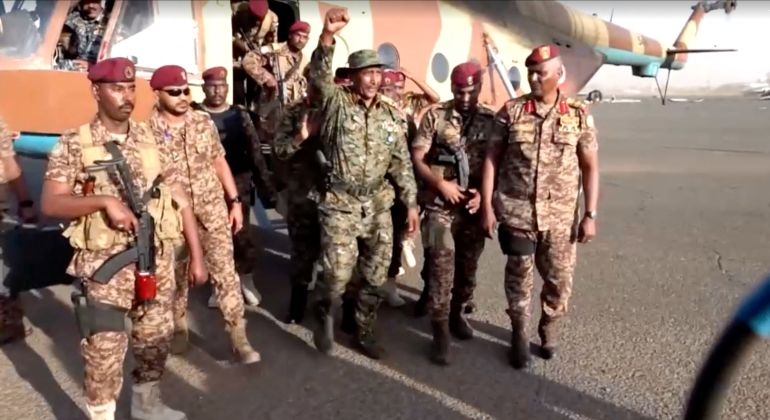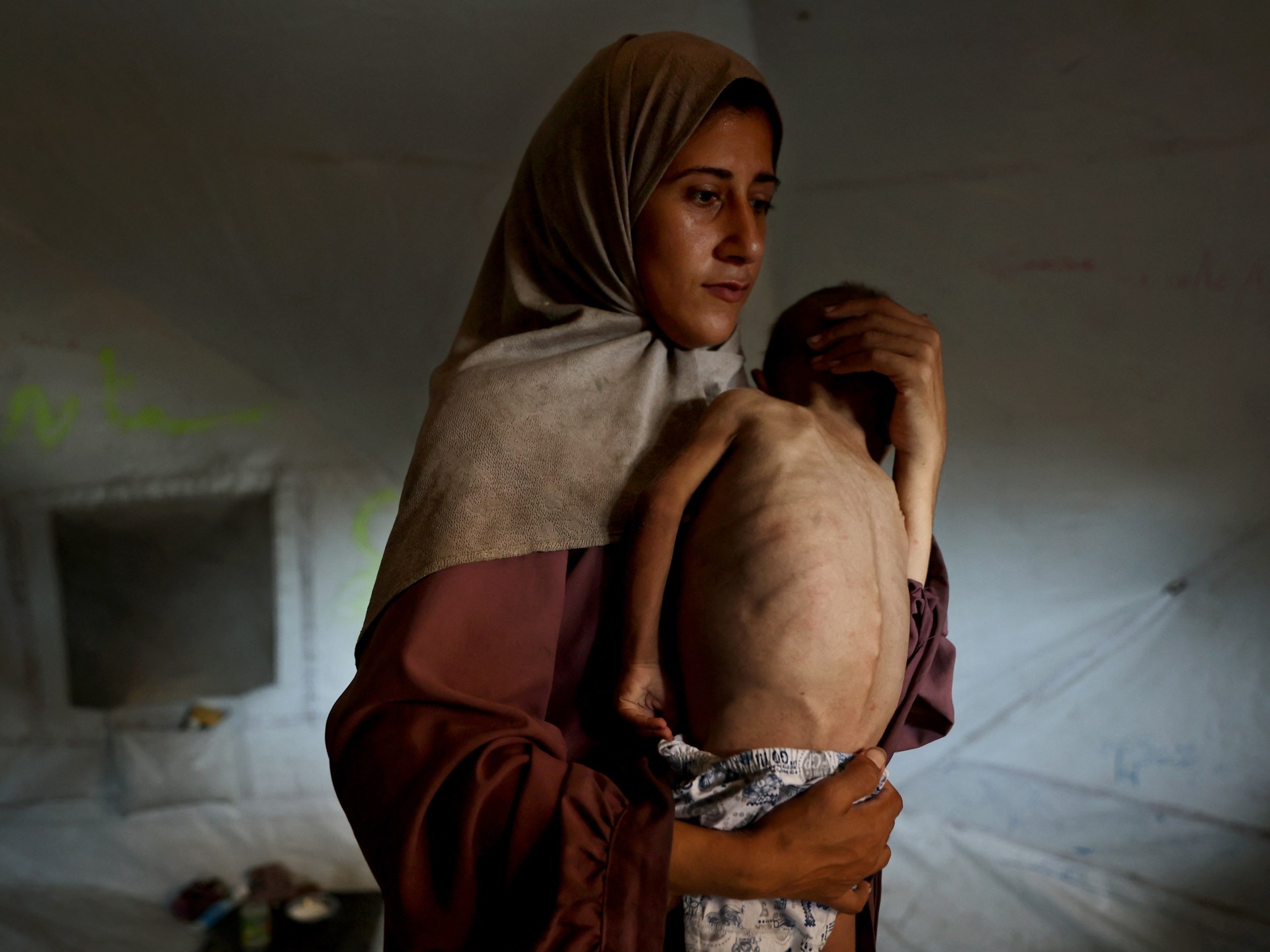Two childhood friends have experienced confinement and injustice at one of Sudan’s conflicting sides in Shambat al-Aradi, a tightly knit neighborhood in Khartoum North that was once known for its vibrant community gatherings and spirited music festivals.
Khalid al-Sadiq, a 43-year-old family doctor, and one of his best friends, a 40-year-old musician who once lit up the stage of the nearby Khedr Bashir Theatre, were inseparable before the war.
Both men, who were both born and raised close to that beloved theater, were swept into a campaign of arbitrary arrests carried out by the paramilitary Rapid Support Forces (RSF) when the civil war broke out in their city in April 2023.
Although the friends’ experiences were different and different, they remained akin to one another until they emerged physically altered, emotionally broken, and compelled to survive forever.
Imprisonment and ransom
Al-Sadiq’s ordeal began in August of 2023 when RSF forces arbitrarily detained Shambat and numerous other men.
He spent days incarcerated in a bathroom in a house where the RSF had looted it along with seven other people.
“We were only let out to eat, then forced back in”, he explained.
The RSF repeatedly tortured al-Sadiq during his first days of interrogation before demanding a ransom.
Using pliers, they used to repeatedly smash his fingers. At one point, to scare him, they fired at the ground near him, sending shrapnel flying into his abdomen and causing heavy bleeding.
The men’s captors gathered them after three days.
According to al-Sadiq, “They tried to bargain with us, demanding 3 million Sudanese pounds [roughly $1, 000] per person.”
Three men were released after handing over everything they had, including a rickshaw and all their cash. Al-Sadiq and the other prisoners who were still in prison were moved to a smaller cell with a more cramped toilet hidden beneath a staircase.
“There wasn’t any ventilation. There were insects everywhere”, he said. They had to alternate sleeping positions; one could almost lie down while the other could stand.
Al-Sadiq’s friend, the musician, who requested anonymity, was also detained and detained at Khartoum North, where the RSF had earlier taken control of the conflict with Sudan’s military, in the first few months of the conflict.
That would not be the only time the musician was taken because the RSF had been told that his family were distantly related to former President Omar al-Bashir.
Because of that connection, even though I was never a member of the regime, they called me a “remainder of the regime.” He claimed that he had protested against al-Bashir and that he had opposed it.
Months later, the RSF raided his family’s Shambat home, and his younger brother was fatally shot. The musician quickly evacuated his family to Umm al-Qura in Gezira state to keep everyone safe, before returning home to collect their belongings. That was when he was arrested.
He claimed to Al Jazeera that the RSF fighters would entrap him and other prisoners and place them face-down in the yard during his time there. Then they would use a “sout al-anag,” a traditional hippo skin-based Sudanese leather whip to defeat them.
The flogging lasted a long time, he added, and it was not an isolated incident. He experienced it a number of times.
RSF agents subjected him to verbal and physical abuse and fabricated information about his alleged affiliation with al-Bashir during interrogations, labeling him as a political Islamist remnant of al-Bashir’s regime, and using slurs like “Koz.”
He was held for about a month, then released to return to a home that had been looted.
At least five more arrests would be made for him.
According to al-Sadiq, “the majority of the detentions were based on people telling each other things, sometimes for personal gain, sometimes for torture.”
“RSF commanders even brag about having a list of Bashir regime or SAF]Sudan armed forces] supporters for every area”.
forced labor
The musician claimed to Al Jazeera that he and others were forced to perform manual labor in a way that the fighters did not want to do while he was being held by the RSF.
“They used to take us out in the morning to dig graves”, he said. “I buried more than 30 graves myself.”
The prisoners who had been tortured, ill, or starved appeared to be the victims of the detention camps’ graves.
While he could not estimate how many people were buried in those pits, he described the site where he was forced to dig, saying it already had many pits that had been used before.
Al-Sadiq was transported to an RSF detention facility in the al-Riyadh neighborhood while being blindfolded, bound, and bundled into a van.
A section for women, an area for those who had been captured in battle, another for those who had surrendered, and an underground chamber known as “Guantanamo,” which is the site of systematic torture, were the five zones in the compound.
Al-Sadiq tried to help the people he was imprisoned with, treating them with whatever they could scavenge and appealing to the RSF to take the dangerously sick prisoners to a hospital.

However, the RSF typically rejected the pleas, and al-Sadiq can still recall one patient, Saber, who the fighters shackled despite their quick deterioration of his health.
“I kept asking that he be transferred to a hospital”, al-Sadiq said. He “died.”
However, some of the prisoners who were being treated did not, and the RSF kept a group of doctors in a separate room with beds and medical equipment.
There, they were told to treat injured RSF fighters or prisoners the RSF wanted to keep alive, either to keep torturing them for information or because they thought they could get big ransoms for them.
Al-Sadiq chose to stay with the other prisoners and cooperate less with the RSF, keeping to himself, and cooperating with them.
In the cell he chose to remain in, conditions were impolite.
“The total water we received daily – for drinking, ablution, everything – was six small cups”, al-Sadiq said, adding that food was scarce and “insects, rats and lice lived with us. I lost 77 pounds and 35 kg.
Although their captors did occasionally provide him with medical supplies when they needed them to treat someone, they provided a lifeline for everyone who came his way.
The prisoners were so desperate that he sometimes shared IV glucose drips he got from the RSF so detainees could drink them for some hydration.
The RSF would only provide small “payments” of sugar, milk, or dates to prisoners who were forced to perform manual labor, such as loading or unloading trucks, as the only other sources of food.
Al-Sadiq did not mention having heard of other prisoners digging graves or having been forced to do so.
For the musician, however, graves became a constant reality, even during the periods when he was able to go back home to Shambat.
He assisted in the interment of about 20 neighbors who had to be buried anywhere but in cemeteries after succumbing to starvation or crossfire.
Without explaining the reason, the RSF prevented people from visiting the cemeteries to rest their loved ones.
In fact at first, the RSF prohibited all burials, then relented and allowed some burials as long as they were not in the cemeteries.
In Shambat Stadium’s Rabta Field and close to the Khedr Bashir Theatre, the musician and others would dig graves for victims.

He said many people who were afraid to leave their homes at all ended up burying their loved ones in their yards or in any nearby plots they could furtively access.
Al-Sadiq was released in the winter, but the friends’ ordeals continued until the RSF stopped intervening to arrest the musician.
Why doesn’t anyone understand why.
Both al-Sadiq and the musician told Al Jazeera they remain haunted by what they endured.
They claimed that their suffering did not end with their release; rather, it persisted, eroding from their minds, a fear that their fate will be forever.
The SAF announced Khartoum’s recapture on March 26. Now, the two men have returned to their neighbourhood, where they feel a greater sense of safety.










